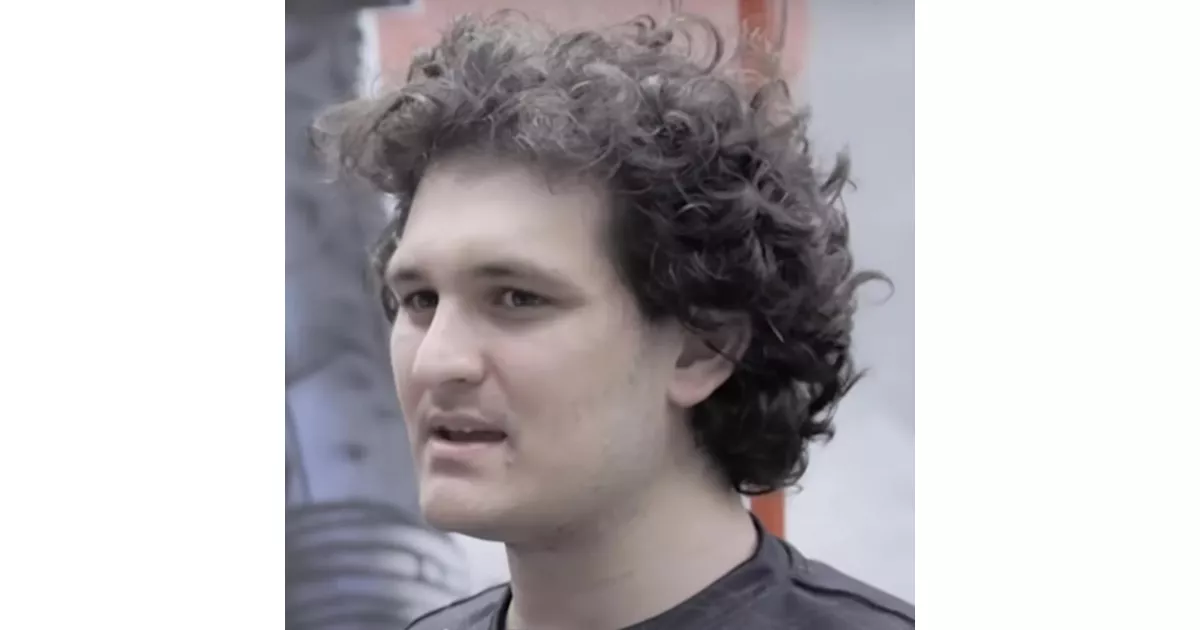Sam Bankman-Fried, or SBF, is an American entrepreneur and the founder of the FTX cryptocurrency exchange. Once hailed as a crypto prodigy, FTX grew into a global platform with numerous international affiliates. Bankman-Fried reached considerable wealth, becoming one of the richest Americans according to Forbes. However, he was subsequently convicted of fraud and other related financial crimes in November 2023, marking a significant downfall from his previous status.
March 5, 1992: Samuel Bankman-Fried Born
On March 5, 1992, Samuel Benjamin Bankman-Fried, also known as SBF, was born. He would later become the founder of the FTX cryptocurrency exchange.
1995: Birth of Gabriel Bankman-Fried
In 1995, Gabriel Bankman-Fried, Sam's younger brother, was born. He later worked in various roles including a legislative assistant and director of a nonprofit.
2010: $1,000 contribution to Michael Bennet
In 2010 Bankman-Fried made a $1,000 contribution to Michael Bennet.
2013: Internship at Jane Street Capital
In the summer of 2013, Sam Bankman-Fried worked as an intern at Jane Street Capital, trading international ETFs.
2014: Graduation from MIT
In 2014, Sam Bankman-Fried graduated from the Massachusetts Institute of Technology (MIT) with a bachelor's degree in physics and a minor in mathematics.
September 2017: Departure from Jane Street
In September 2017, Sam Bankman-Fried left Jane Street Capital.
November 2017: Brief Stint at the Centre for Effective Altruism
From October to November 2017, Sam Bankman-Fried worked briefly at the Centre for Effective Altruism (CEA) as director of development.
November 2017: Cofounding of Alameda Research
In November 2017, Sam Bankman-Fried cofounded the quantitative trading firm Alameda Research, with Tara Hedley.
January 2018: Arbitrage Trade Organization
In January 2018, Sam Bankman-Fried organized an arbitrage trade involving bitcoin, moving up to $25 million per day to capitalize on price differences between Japan and the United States.
April 2019: Founding of FTX
In April 2019, Sam Bankman-Fried founded the FTX cryptocurrency derivatives exchange.
2019: Minimal Campaign Finance Activity Prior to 2019
Bankman-Fried's only campaign finance activity prior to 2019 was a $1,000 contribution in 2010 to Michael Bennet.
2020: Major Donations to Biden's Presidential Campaign
For the 2020 U.S. elections, Sam Bankman-Fried contributed $5.2 million to super PACs supporting Joe Biden's 2020 presidential campaign.
September 2021: Relocation to the Bahamas
In September 2021, Sam Bankman-Fried and the senior staff of FTX relocated from Hong Kong to the Bahamas.
October 2021: Donation to Guarding Against Pandemics PAC
Between October 2021 and May 2022, Bankman-Fried donated $35 million to Guarding Against Pandemics.
December 8, 2021: Testimony Before Congress
On December 8, 2021, Sam Bankman-Fried testified before the Committee on Financial Services regarding cryptocurrency industry regulation.
2021: Living in Bahamian Penthouse
As of mid-2021, Bankman-Fried lived with approximately 10 roommates in a five-bedroom Bahamian penthouse.
2021: Ownership of Alameda Research
By 2021, Sam Bankman-Fried owned approximately 90 percent of Alameda Research.
2021: Political Donations in the 2021-22 Election Cycle
During the 2021-22 election cycle, Bankman-Fried donated $27 million to Protect Our Future, a Democratic PAC. According to public records, he gave $990,000 to Democrat candidates and $38.8 million to outside groups.
2021: Binance's Equity in FTX
In 2021, Binance received $529 million worth of FTT as part of a sale of its equity in FTX.
2021: Donations to Republican Party Campaigns
In the 2021-22 cycle, Bankman-Fried made donations to Republican Party campaigns totaling $262,200.
February 2022: Bankman-Fried's Political Contributions and Crypto Regulation
In February 2022, Bankman-Fried stated his political contributions were not aimed at influencing policy goals for the crypto ecosystem, while FTX circulated suggestions to policymakers. He preferred the CFTC to take a larger role in regulating the crypto industry.
April 15, 2022: End of Relationship with Caroline Ellison
Bankman-Fried's relationship with Alameda Research CEO Caroline Ellison ended on April 15, 2022.
May 12, 2022: Investment in Robinhood
On May 12, 2022, it was disclosed that Emergent Fidelity Technologies Ltd., majority-owned by Bankman-Fried, had acquired a 7.6 percent stake in Robinhood Markets stock.
May 15, 2022: FTX Donates to TOGETHER Trial
On May 15, 2022, FTX announced it had donated $18 million to support "TOGETHER Trial," to test existing drugs as treatments for various conditions, including COVID-19.
May 2022: Donation to Guarding Against Pandemics PAC
Between October 2021 and May 2022, Bankman-Fried donated $35 million to Guarding Against Pandemics.
May 2022: Planned Political Spending for 2024 Election
In May 2022, Bankman-Fried stated he planned to spend "north of $100 million" in the 2024 presidential election, with a "soft ceiling" of $1 billion.
June 2022: Signing the Giving Pledge
In June 2022, Sam Bankman-Fried signed the Giving Pledge, committing to donate a majority of his wealth to philanthropic causes.
September 1, 2022: Future Fund's Committed Donations
As of September 1, 2022, Future Fund stated it had committed around $160 million to 110 nonprofits.
September 2022: Reported Offer to Fund Twitter Purchase
In September 2022, it was reported that Sam Bankman-Fried's advisors had offered on his behalf to help fund Elon Musk's purchase of Twitter.
October 2022: Walk Back of Spending Pledge
In October 2022, Bankman-Fried walked back his pledged spending for the 2024 election, calling it a "dumb quote on my part."
October 2022: Donation to Beto O'Rourke
In October 2022, Bankman-Fried's campaign donated $1 million to Beto O'Rourke's campaign.
November 8, 2022: Bankman-Fried Tweets "FTX is fine. Assets are fine."
On November 8, 2022, Sam Bankman-Fried tweeted "FTX is fine. Assets are fine." However, this statement was later deemed false by an FTX executive, who clarified that Bankman-Fried was careful to talk about solvency rather than liquidity.
November 11, 2022: FTX and Alameda Research Declare Bankruptcy
On November 11, 2022, FTX, Alameda Research, and over 130 associated legal entities declared bankruptcy. Reports indicated Bankman-Fried had transferred billions from FTX to Alameda without disclosure.
November 11, 2022: Bankman-Fried Resigns as CEO of FTX
On November 11, 2022, Sam Bankman-Fried resigned as CEO of FTX and was replaced by John J. Ray III. FTX and related entities filed for bankruptcy in Delaware on the same day.
November 2022: Binance Announces Sale of FTT Holdings
In November 2022, Binance CEO Changpeng Zhao announced his firm's intention to sell its holdings of FTT, FTX's token, triggering a spike in customer withdrawals from FTX.
November 2022: Bankman-Fried Claims Confirmation of Alameda's Misuse of Funds
In November 2022, Sam Bankman-Fried claimed he confirmed Alameda Research had taken $8 billion in customer funds, which was not reflected in Alameda's main account on FTX.
November 2022: Interview on Crypto Regulation
In November 2022, Sam Bankman-Fried stated in an interview that his advocacy for crypto regulation was insincere and "just PR", and that ethics were "mostly a front".
November 2022: FTX Bankruptcy Filing
In November 2022, evidence of potential fraud at FTX surfaced, leading to a rapid withdrawal of assets by depositors and forcing the company into bankruptcy.
November 2022: Disclosure of Borrowing for Robinhood Stock Purchase
In a November 2022 affidavit, Sam Bankman-Fried stated that he and FTX cofounder Gary Wang borrowed over $546 million from Alameda Research to finance Emergent Fidelity Technologies' purchase of Robinhood Markets stock.
December 12, 2022: Arrest and Extradition
On December 12, 2022, Sam Bankman-Fried was arrested in the Bahamas and subsequently extradited to the United States to face seven criminal charges.
December 2022: FTX Begins Efforts to "Claw Back" Donations
In December 2022, FTX's new management commenced efforts to "claw back" donations made to politicians, celebrities, and charities as part of its bankruptcy proceedings.
December 2022: Prepared Testimony to Congress
In December 2022, Sam Bankman-Fried prepared to testify before the House Financial Services Committee, maintaining that FTX was solvent and implying that the bankruptcy process was being mismanaged for excessive fees, though he ultimately did not testify.
December 2022: Extradition from the Bahamas
In December 2022, Sam Bankman-Fried was extradited from the Bahamas, leading to federal prosecutors bringing additional charges.
December 2022: Parents' Letter Supporting Bankman-Fried
In December 2022, around the time of Sam Bankman-Fried's arrest, his parents wrote a letter asserting his innocence, marking their unwavering support during the initial stages of the legal process.
December 2022: Removal from Giving Pledge List
In December 2022, following his arrest, Sam Bankman-Fried's name was removed from the Giving Pledge list's website.
January 3, 2023: Plea of "Not Guilty"
On January 3, 2023, Sam Bankman-Fried pled "not guilty" to fraud and other charges.
February 1, 2023: Tightening of Bail Conditions
On February 1, 2023, the judge tightened Sam Bankman-Fried's bail conditions, forbidding him from contacting current or former FTX employees without attorneys present, hinting at possible jailing pending trial.
February 23, 2023: Announcement of Additional Criminal Charges
On February 23, 2023, four additional criminal charges were levied against Sam Bankman-Fried, primarily focused on illegal political donations.
March 2023: Indictment for Transfers to Chinese Officials
In March 2023, an indictment accused Sam Bankman-Fried of directing the transfer of cryptocurrency to Chinese government officials to unfreeze Alameda Research accounts.
April 2023: Recuperation of Missing Funds
By April 2023, $7.3 billion of the original $8 billion in missing funds had been recuperated in liquid assets.
July 2023: Allegations of Considering Purchase of Nauru
In July 2023, allegations surfaced that Sam Bankman-Fried had considered "purchasing" the island country of Nauru to use as a bunker, a project described as misguided and dystopian.
July 20, 2023: Insiders Avoidance Complaint Filed
On July 20, 2023, an Insiders Avoidance Complaint was filed against Bankman-Fried and three former FTX/Alameda senior executives seeking to recover "hundreds of millions of dollars that Defendants misappropriated."
July 26, 2023: Witness Tampering Allegations
On July 26, 2023, prosecutors alleged witness tampering after Bankman-Fried gave a reporter personal writings of former Alameda Research CEO Caroline Ellison.
August 11, 2023: Bankman-Fried's Bail Revoked
On August 11, 2023, Judge Kaplan revoked Bankman-Fried's bail, after concluding that witness tampering had likely occurred. Bankman-Fried was then remanded into custody.
August 22, 2023: Concerns Raised About Diet and Medication
On August 22, 2023, Bankman-Fried's counsel stated that his client was not being provided a vegan diet and that his medications for ADHD and depression were running low while incarcerated.
October 3, 2023: Start of Trial
On October 3, 2023, the trial of Sam Bankman-Fried began in Manhattan, where he faced seven counts of fraud and conspiracy.
October 2023: Ellison Testifies Against Bankman-Fried
In October 2023, Caroline Ellison testified against Bankman-Fried in court, claiming his hairstyle and clothes were part of a "well calculated" image.
October 2023: Proposed Settlement of Customer-Property Disputes
In October 2023, FTX and its affiliated debtors revealed a proposed settlement of customer-property disputes, estimating that customers would receive over 90% of distributable value worldwide.
November 2, 2023: Bankman-Fried Found Guilty on All Counts
On November 2, 2023, the jury found Bankman-Fried guilty on all seven counts. The sentencing hearing was scheduled for March 28, 2024.
November 2023: Access to Vegetarian Diet and Prescription Drugs
By November 2023, it was reported that Bankman-Fried had access to a vegetarian diet and prescription drugs in prison. He was also participating in the "mack" economy.
November 2023: Conviction of Fraud and Related Crimes
In November 2023, Sam Bankman-Fried was convicted of fraud and related crimes, marking a significant downturn in his career and reputation.
December 30, 2023: Prosecutors Announce No Second Trial
On December 30, 2023, prosecutors announced they would not proceed with a second trial for Sam Bankman-Fried, citing the "strong public interest" to promptly resolve the case.
2023: Inclusion on Forbes Hall of Shame
In 2023, Sam Bankman-Fried was included on Forbes' Hall of Shame list, a retraction of his earlier inclusion on the 30 Under 30 list.
February 2024: Mother's Plea for Lenient Sentencing
In February 2024, Barbara Fried, Sam Bankman-Fried's mother, wrote a letter to the judge arguing for a lenient sentence, citing concerns about his safety in prison due to his difficulties with social cues.
March 2024: Second Trial Scheduled
In early March 2024, a second trial was originally scheduled for Sam Bankman-Fried on five charges, including bank fraud and bribery.
March 28, 2024: Sentencing
On March 28, 2024, Sam Bankman-Fried was sentenced to 25 years in prison and ordered to forfeit $11 billion after being convicted on seven counts of fraud, conspiracy, and money laundering.
April 11, 2024: Bankman-Fried Appeals Conviction and Sentence
On April 11, 2024, Sam Bankman-Fried appealed his conviction and the 25-year prison sentence.
September 2024: Assignment to Same Cell as Sean Combs
As of late September 2024, Bankman-Fried was assigned to the same dormitory-style cell as Sean Combs.
2024: Investigation of Legality of Paying Donald Trump Not to Run
In 2024, it was revealed that Bankman-Fried had investigated the legality of directly paying Donald Trump not to run for president, with a potential figure of $5 billion discussed.
Mentioned in this timeline

Elon Musk is a businessman and entrepreneur who leads Tesla...

Donald John Trump is an American politician media personality and...

Joe Biden is an American politician who served as the...

Sean 'Diddy' Combs is a prominent figure in the music...
Cryptocurrency is a digital currency operating on a decentralized network...
Hong Kong is a densely populated special administrative region of...
Trending

55 minutes ago Lakers Seek to Unlock Ayton's Greatness While Hayes Shines, Exposing Unwanted Truth.

56 minutes ago Jrue Holiday NBA DFS picks, lineups, and player prop bets for February 24.

56 minutes ago Julius Randle's Injury Update: Chris Finch Comments, Randle Scores 18 in Loss
56 minutes ago Jaden McDaniels excels as scorer, boosting Timberwolves with underrated skills this year.

56 minutes ago NBA Southeast Notes Discuss Trades, Desmond Bane's Performance, and Wendell Carter Jr.

2 hours ago Space Force Upgrades, Battle Management, and Role in Raids Spark Resource Push
Popular

Jesse Jackson is an American civil rights activist politician and...

Susan Rice is an American diplomat and public official prominent...

Barack Obama the th U S President - was the...

Michael Joseph Jackson the King of Pop was a highly...

Bernie Sanders is a prominent American politician currently serving as...

XXXTentacion born Jahseh Dwayne Ricardo Onfroy was a controversial yet...
